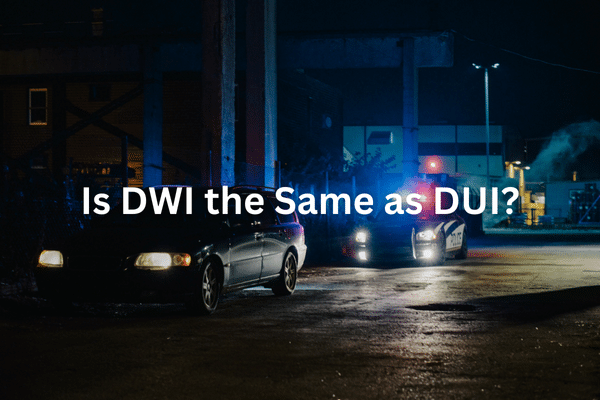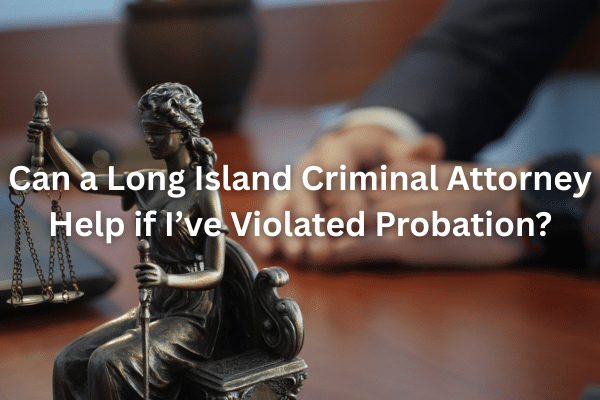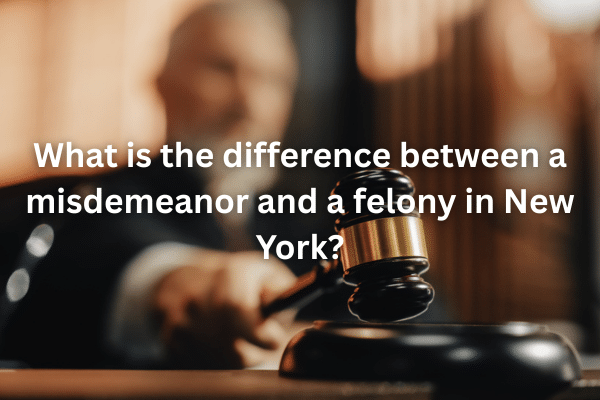

You hear both terms all the time, often in the same sentence, and it’s easy to assume they mean the same thing. In everyday conversation, people use DWI and DUI interchangeably to describe drunk or drug-related driving charges. But if you were arrested on Long Island, the exact label matters because New York law doesn’t technically use “DUI.” Understanding the difference helps you read your charge correctly, plan a smart defense, and avoid common mistakes that can make your situation worse.
DWI and DUI point to the same type of conduct: impaired driving. However, they’re not always the same charge. “DUI” is a broad, national shorthand: driving under the influence of alcohol and/or drugs. New York’s statutes use DWI (driving while intoxicated) and DWAI (driving while ability impaired) with specific thresholds and categories. So if your arrest happened in Suffolk or Nassau County, your paperwork would reference New York Vehicle & Traffic Law §1192 with one of the following:
In other states, you might see “DUI,” “OUI,” or “OVI.” They describe similar behavior but use different names, standards, and penalties. That’s why searching for a “DUI lawyer” will still bring up New York attorneys, but the case documents here will say DWI/DWAI, not DUI.
Two arrests that look identical on the surface can carry very different consequences depending on the subsection cited:
Every case is different, but effective defenses usually drill into details like:
DWI and DUI describe the same idea but in New York, they are not the same charge on paper. New York uses DWI/DWAI with precise categories that affect your exposure, your license, and your future. If your arrest happened in Suffolk or Nassau County, make sure your guidance is tailored to New York’s rules, not generic “DUI” advice you found online for another state.
If you or a loved one were charged on Long Island, I’m here to help. I’m Ed Palermo, a Long Island criminal defense attorney with decades of experience representing people in DWI and related cases in Suffolk and Nassau. Contact me for a free, confidential consultation and let’s review your charge, protect your license, and start building your defense today.

If you or someone you love has been arrested for DWI in Suffolk County, you are likely worried about your license, your job, and what happens in court. My role is to steady the situation on day one, protect your rights at every step, and guide you to the best possible outcome under New York law. With over three decades in criminal defense and deep experience in Suffolk courts, I know how these cases are built and how they can be won, narrowed, or resolved favorably.
Immediate Triage After an Arrest
The first objective is to control damage. I review the complaint, the probable cause paperwork, and any chemical test results, then prepare you for arraignment if it has not already happened. Many Suffolk judges impose a suspension pending prosecution when there is a test above the legal limit, so I address hardship driving applications and begin planning for a conditional license through the Impaired Driver Program when eligibility allows.
Case Investigation and Evidence Collection
A strong defense starts with complete information. I demand body-worn camera videos, dashboard footage, breath test tickets, maintenance and calibration logs, 911 calls, dispatch records, and field notes from every officer involved. I also move quickly to preserve independent video from homes or businesses near the stop scene, collect medical records that may explain balance or speech issues, and identify civilian witnesses who saw your driving or your interactions with police.
Challenging the Stop and the Arrest
Every DWI case begins with a traffic stop or police contact. I examine whether the officer had a lawful reason to stop you, whether the detention was unreasonably prolonged, and whether field sobriety tests were administered and scored according to standardized protocols. Many people have medical or orthopedic conditions that affect balance, or anxiety that affects performance, and body-camera video often tells a more complete story than a checkbox on a form.
Attacking Chemical Tests and “Numbers”
Prosecutors often rely on a breath or blood alcohol number. I scrutinize the 15-minute observation period, the operation of the breath instrument, recent maintenance and accuracy checks, the presence of mouth alcohol, GERD or reflux issues, and whether instructions were properly given. If blood was drawn, I evaluate the chain of custody, anticoagulant and preservative use, storage temperatures, potential fermentation, and lab methodologies. The number only matters if it is reliable and admissible, and I work to keep unreliable evidence out of the case.
DMV Refusal Hearing Representation
If you allegedly refused a breath test, the DMV will schedule a separate administrative hearing that can result in a license revocation and civil penalties. I represent you at this hearing, cross-examine the arresting officer, and challenge whether the warnings were properly given and whether there was an actual refusal. This hearing also creates sworn testimony that can help your criminal case later, so it is both a licensing fight and a strategic opportunity.
Motion Practice and Suppression Hearings
Strong pretrial motions can change the trajectory of a DWI case. I file motions to suppress evidence from an unlawful stop, to exclude statements taken in violation of your rights, to preclude unreliable test results, and to sanction discovery violations. When the court orders evidentiary hearings, I prepare you and my expert witnesses, and I use those hearings to expose weaknesses that often lead to reductions or dismissals.
Negotiation With the District Attorney
Not every case will end in a trial, and smart negotiation can protect your future. I present mitigation that prosecutors and judges consider, including documented sobriety efforts, alcohol or substance evaluations, early treatment, proof of employment, community service, and hardship circumstances such as caregiving responsibilities. When the evidence is weak or legal issues are strong, I push for reductions to DWAI or other non-criminal dispositions, and I work to limit fines, surcharges, and the duration of any ignition interlock requirement.
Special Situations That Need Extra Care
Some clients face unique risks that must be addressed from day one. Commercial drivers have much lower tolerance under the law and face lengthy CDL disqualifications even for incidents in a personal vehicle. Drivers under 21 can be hit with administrative penalties under the zero-tolerance law, separate from criminal charges. Accidents with injuries, allegations of very high BAC, or cases with a child in the car can invoke enhanced penalties, so I build a plan that accounts for these added stakes.
Expert Consultation and Trial Preparation
When the case calls for it, I bring in experts in breath testing, toxicology, accident reconstruction, or video forensics. These experts help unpack complex data, recreate timelines, and explain scientific flaws in a way that jurors and judges can understand. If we go to trial, I prepare you thoroughly, draft clear cross-examinations of the state’s witnesses, and present a narrative that shows reasonable doubt based on facts and science.
Sentencing Planning and Compliance
If a plea or conviction occurs, the work is not over. I advocate for fair sentencing and help you complete court requirements efficiently, from ignition interlock installation to class enrollment and community service placement. I also coordinate documentation that demonstrates compliance, because timely and accurate proof can prevent violations and additional penalties.
Protecting Your License and Your Livelihood
Driving privileges are essential on Long Island, so license strategy is central to my approach. I help you navigate the Impaired Driver Program, conditional privileges, potential waivers, and interlock rules to minimize disruption to work and family obligations. For out-of-state drivers, I address potential consequences in the home state through the Interstate Driver License Compact and advise you on realistic expectations.
What I Need From You
Your input can make a real difference. I ask clients to write a detailed timeline, gather names and numbers for any witnesses, share medical and dental history that could affect field sobriety performance, and provide employment documentation that shows the real-world impact of a suspension. Open communication helps me tailor a defense that fits your goals, whether that is clearing your name, limiting penalties, or protecting a professional license.
How Long Will This Take and What Will It Cost
Every case is different, but most Suffolk DWI matters take several months, especially if we litigate motions or hold hearings. Fees reflect the complexity of the facts, the need for experts, and whether the case proceeds to trial, and I am clear about costs and options from the start so you can make informed decisions.
The Bottom Line
A DWI case is a legal, scientific, and personal challenge, and you should not face it alone. My job is to find the weaknesses in the state’s proof, protect your license and your record, and guide you through each decision so you can move forward with confidence.
If you are facing a DWI in Suffolk County, contact Ed Palermo today for a free, confidential consultation. I will review your situation, explain your options, and start building your defense right away.

You’ve rebuilt your routine, started a new job, and maybe even begun to relax after the stress of your criminal case—until a single phone call from your probation officer threatens to send everything crashing down. Whether you missed a meeting, failed a drug test, or were arrested on a new charge, a probation violation allegation can instantly place your freedom at risk. I’m Ed Palermo, and for more than thirty years, I’ve helped Long Islanders protect their second chance and avoid harsh penalties when probation terms go sideways. Here’s what you need to know and how a seasoned Long Island criminal attorney can step in before a mistake becomes a catastrophe.
Probation is meant to be an opportunity: you serve part (or all) of your sentence in the community, provided you follow a detailed set of conditions. Those conditions often include regular check-ins, drug or alcohol testing, curfews, employment requirements, and restrictions on travel. In Suffolk and Nassau counties, probation can last anywhere from one to five years for misdemeanors, and up to ten years for certain felonies. A single misstep, however minor it may seem, can trigger a violation hearing and expose you to jail or prison time that was originally suspended.
Once your probation officer files a Violation of Probation (VOP) report, the court can issue a bench warrant. You might be arrested at home, at work, or during a routine traffic stop, and held without bail until your initial hearing. Judges have broad discretion: they can modify your conditions, extend probation, impose additional community service, or revoke probation entirely and order the original jail or prison sentence. The sooner an attorney enters the picture, the more options you’ll have.
Rapid Intervention & Communication
I move quickly to contact the probation officer and the assigned assistant district attorney, gathering details of the alleged violation and advocating for your release pending the hearing. A respectful, cooperative tone—combined with a clear plan to address the issue—often persuades the court that detention is unnecessary.
Building a Record of Compliance
Even when a violation occurred, demonstrating your overall progress is powerful. Pay stubs, counseling attendance, negative test results, and letters of support help counterbalance a single mistake. My team organizes this evidence and presents it in a way that resonates with judges who weigh rehabilitation against punishment.
Crafting Legal & Factual Defenses
Not every allegation holds water. Testing protocols can be flawed; GPS ankle monitors produce false positives; and officers occasionally misinterpret terms. I scrutinize every data point, subpoena lab records if needed, and cross-examine witnesses to expose weak links in the state’s case.
Negotiating Alternatives to Incarceration
Even when the violation is clear, tailored solutions—such as intensified outpatient treatment, electronic home monitoring, or a short “shock” jail weekend—often persuade the bench that revocation is excessive. Decades of local experience mean I know which arguments succeed before particular Long Island judges.
Clients facing probation violations usually arrive at my office anxious and ashamed. I start by listening so I can separate human error from alleged willful defiance. Then I map out a timeline: what must happen in the next 24 hours, the next week, and before the final hearing. Communication is key; you’ll never wonder about the status of your case. I leverage long-standing relationships with probation departments, treatment providers, and court personnel to secure practical, client-centered outcomes that keep life on track.
Will the judge automatically revoke my probation if I test positive once?
No. While a positive test is serious, judges look at your overall compliance record and any steps you take—such as enrolling in treatment—before making a decision.
Can a probation officer recommend jail time?
Yes, but the ultimate decision rests with the judge. A persuasive attorney can counter the officer’s recommendation with evidence of progress and alternative sanctions.
How long does a violation case take?
Simple matters can be resolved in a single hearing, while contested violations with expert testimony may require several weeks to be resolved. Early preparation speeds the process.
Is it worth hiring a lawyer if I’m clearly at fault?
Absolutely. Even when the violation is undeniable, skilled advocacy often reduces—or completely avoids—incarceration.
A probation violation doesn’t have to erase the progress you’ve made. With decisive, experienced representation, you can present the strongest possible case, protect your freedom, and move forward with confidence. If you or a loved one on Long Island has been accused of violating probation, contact my office today. Let’s safeguard the opportunity you worked so hard to earn.
An arrest can feel like the ground disappears beneath your feet, but what happens next depends greatly on how New York classifies the offense. You may hear the words misdemeanor or felony tossed around in court or on the evening news, yet the true meaning behind these labels and how they shape your life often remains hazy. Let’s clear the fog so you can move forward with confidence and a solid plan.

New York’s Penal Law sets the dividing line by the maximum sentence a judge may impose:
That single-day gap between 364 and 365 days might seem trivial, yet it triggers a cascade of consequences.
| Class | Maximum Jail | Typical Fine Ceiling |
|---|---|---|
| A | 364 days | $1,000 (plus surcharges) |
| B | 90 days | $500 (plus surcharges) |
| Unclassified | Statute-specific | Statute-specific |
New York intentionally caps misdemeanor jail at 364 days (not a full year) to avoid triggering certain federal immigration removal rules.
Although many misdemeanors can be resolved with conditional discharges, probation, or treatment-based programs, a conviction remains a criminal record—visible to employers, landlords, and licensing boards. Fortunately, most misdemeanors are eligible for sealing after ten crime-free years, and creative pre-trial strategies can sometimes keep the conviction off your record entirely.
| Class | Possible Sentence (Indeterminate) |
|---|---|
| A-I / A-II | 20–25 years to life or life without parole |
| B | 5–25 years |
| C | 3½–15 years |
| D | 2–7 years |
| E | 1⅓–4 years |
Life sentences and mandatory minimums enter the picture at the felony level, and parole supervision can extend decades beyond prison walls.
| Stage | Misdemeanor | Felony |
|---|---|---|
| Initial Filing | Information or simplified information | Complaint → Grand Jury Indictment (unless waived) |
| Discovery | 35-day timeline under CPL §245 | 35-day timeline, but often more voluminous evidence |
| Pre-Trial Motions | Omnibus motion common but narrower in scope | Adds suppression hearings on statements, identifications, physical evidence |
| Negotiations | Prosecutor may offer reduction to a violation | Reductions limited; some felonies carry mandatory minimums |
| Trial | 6-person jury (unless waived) | 12-person jury |
Because felonies trigger grand-jury review and stiffer sentences, early intervention—from investigating witnesses to negotiating with prosecutors—often makes or breaks the outcome.
Navigating these relief provisions demands meticulous paperwork, persuasive advocacy, and a keen understanding of court culture in each county.
Some defendants fixate on the headline charge—grand larceny, assault, DWI—without understanding that the grade of that charge dictates everything from bail decisions to plea-bargain leverage. As a defense lawyer who has handled thousands of cases across Long Island and New York City over more than three decades, I weigh each factor:
Often, success means persuading the prosecution or a judge to re-classify a borderline felony as a misdemeanor, or a misdemeanor as a mere violation. That single step down can preserve your career, immigration status, or even your child-custody rights.
Legal definitions are only half the battle; how those definitions play out in a bustling courthouse is the real test. Judges differ in sentencing philosophy, prosecutors rotate through specialized bureaus, and every county has its own procedural quirks. A tailored defense plan—grounded in statute yet responsive to local norms—remains your best safeguard.
If you or a loved one has been charged in New York and you’re unsure whether the case is a misdemeanor or a felony—or what that difference truly means for your life—reach out. I’m Ed Palermo, and for over 30 years I’ve guided clients through the darkest moments of the criminal-justice system with practical advice, aggressive advocacy, and genuine care. Call (631) 265-1052 or use the contact form below for a free, confidential consultation. Your next step matters, so let’s make it the right one together.